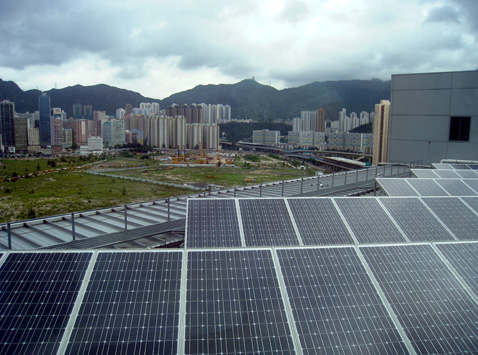
There is an immediate need for financial institutions as well as channel partners accredited by the Ministry of New and Renewable Energy under the grid-connected rooftop and small solar power plants programme to join hands for boosting adoption of solar power in the country.
The Centre has recently revised the solar power generation target, now aiming to achieve 100,000 MW solar power capacity by 2022. Of the total targeted capacity, 40,000 MW is slated to come from grid-connected rooftop solar photovoltaic projects.
Addressing channel partners and new entrepreneurs during a consultation meet on grid-connected rooftop solar PV and small solar PV power generating plants on March 19, 2015, in New Delhi, Tarun Kapoor, Joint Secretary, MNRE, said encouraging regulations, customer motivation and government facilitation were key steps to achieving the solar power generation target, further adding that lack of customer motivation was the biggest impediment to adoption of rooftop solar at present. He stressed on the need for financial institutions and channel partners to come together for incentivizing and motivating customers to adopt solar power. Pointing to the subsidy constraints, Kapoor suggested that channel partners should go ahead with installations without waiting for subsidy from the Centre.
Making a presentation at the meet, Dr. Arun K. Tripathi, Director, MNRE, informed that 17 states and union territories had issued regulations concerning net metering and grid connectivity for installation of rooftop systems. He said the ministry was looking at findings of various international agencies with regard to low cost financing of rooftop solar PV installations. He highlighted that channel partners needed to develop marketing plans, sales and servicing plans, innovative business models and user manuals in order to attract consumers.
Besides focusing on the roadmap to achieve the target of 40,000 MW from grid-connected rooftop solar PV power projects, the consultation meet discussed the initiatives that have either been taken or proposed by the MNRE for rapid scaling up of the grid-connected rooftop solar and small solar power plants programme in an inclusive manner, the difficulties presently being faced by the grid-connected rooftop solar sector, ways of creating a subsidy free ecosystem in the sector and other related issues.
The channel partners opined at the meet that MNRE should withdraw the capital subsidy from the programme so that a free market could be developed. They suggested that the subsidy component could instead be used for quality assurance or as collateral by MNRE to banks that provide low interest loans to solar installers and customers. It was also pointed out that income tax rebates would popularise domestic installation of rooftop solar PV systems. To further extend the market outreach of rooftop solar, banks were advised to promote and advertise their policies concerning loans for rooftop solar PV systems along with home loans and home improvement loans.
The channel partners are a major implementing arm of the grid-connected rooftop and small solar power plants programme.











